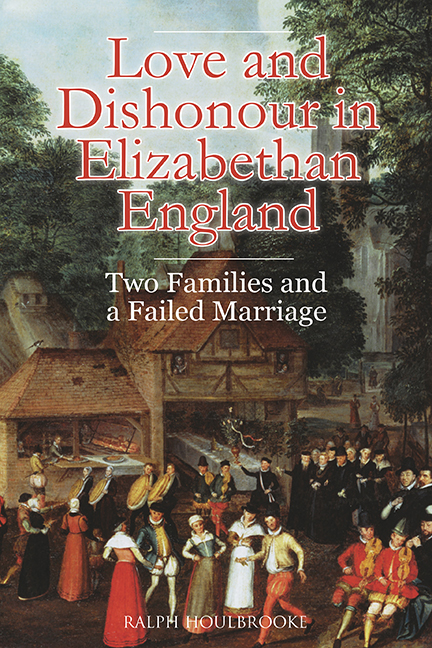Book contents
- Frontmatter
- Dedication
- Contents
- List of Illustrations
- Preface and Acknowledgements
- Notes on the Spelling of Names, Dates, and Currency
- List of Abbreviations
- map
- Miscellaneous Frontmatter
- Introduction
- Part I Two Families
- Part II An Unfortunate Marriage
- Part III Afterwards
- 7 Aftermath
- 8 Conclusions, Reflections, and Speculations
- Bibliography
- Index
7 - Aftermath
from Part III - Afterwards
Published online by Cambridge University Press: 13 July 2019
- Frontmatter
- Dedication
- Contents
- List of Illustrations
- Preface and Acknowledgements
- Notes on the Spelling of Names, Dates, and Currency
- List of Abbreviations
- map
- Miscellaneous Frontmatter
- Introduction
- Part I Two Families
- Part II An Unfortunate Marriage
- Part III Afterwards
- 7 Aftermath
- 8 Conclusions, Reflections, and Speculations
- Bibliography
- Index
Summary
All the main actors in our story besides the unfortunate Charles Forth lived on after the end of the proceedings in Requests in 1597. This chapter sets out what has so far been discovered about their subse¬quent fortunes, following first the Butley Forths, especially Charles's father Robert, mother Frances, and brother William; then Elizabeth's mother Katherine, sisters Catherine and Frances, and brother-in-law Henry Jerningham; and finally Elizabeth herself and her children Katherine and Francis.
The Butley Forths
Robert Forth survived the final failure of his suit in Requests by four years. He died at Butley on 17 February 1601. His will, dated 2 February 1601, was proved a month later. Robert designated his son William the successor to the great bulk of his lands. Frances's substantial ‘dower and jointure’, including the site of Butley Priory and his mansion house, would however pass to William only after his mother's death. She was also to hold for fourteen years after Robert's death a further consid¬erable amount of property, using the income for the payment of his debts and the fulfilment of his will. Robert bequeathed to his younger son, also named Robert, an outlying cluster of relatively small proper¬ties near the border between Essex and Suffolk which Frances was to hold until the younger Robert reached his majority, together with an annuity of £20. These provisions gave Frances a substantial degree of control. William Forth was almost certainly close to his age of majority at the time of his father's death. He nevertheless faced the prospect of a long wait for full control of the lands left to him.
Robert was concerned for his children's upbringing as well as their future livelihood. He expected Frances to take diligent care of them during their minority and provide for their education, including ‘godlie, good and decent exercises’. He also hoped that Thomas Retheriche or Reddridge, minister and pastor of the parish church of Butley, would take pains to instruct both William and the parishioners in the Word of God by preaching and catechising, and from time to time give William counsel to live according to God's will. Robert appointed Frances and William his executors, and asked his brother-in-law John Osborne to give them advice and assistance as the supervisor of his will.
- Type
- Chapter
- Information
- Love and Dishonour in Elizabethan EnglandTwo Families and a Failed Marriage, pp. 205 - 230Publisher: Boydell & BrewerPrint publication year: 2018

